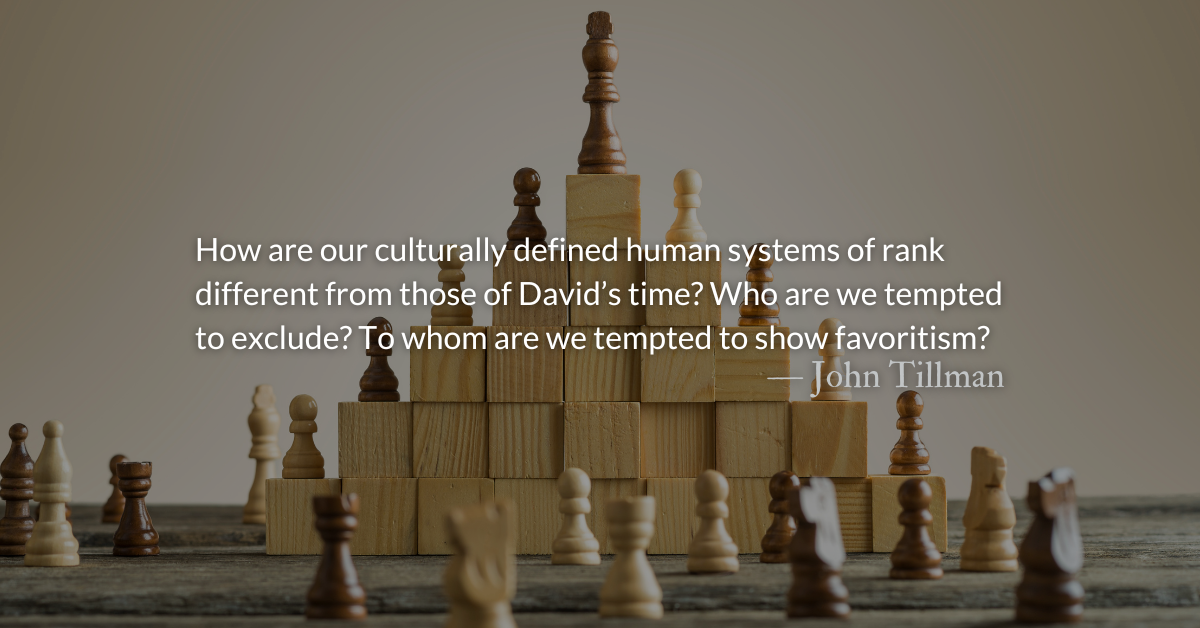Links for today’s readings:
Dec 1 Read: 1 Chronicles 29 Listen: (5:50) Read: Psalms 105 Listen: (4:02)
Scripture Focus: 1 Chronicles 29.14-16
14 “But who am I, and who are my people, that we should be able to give as generously as this? Everything comes from you, and we have given you only what comes from your hand. 15 We are foreigners and strangers in your sight, as were all our ancestors. Our days on earth are like a shadow, without hope. 16 Lord our God, all this abundance that we have provided for building you a temple for your Holy Name comes from your hand, and all of it belongs to you.
Reflection: Generosity Gives Hope — Hope of Advent
By John Tillman
As Christmas approaches, we often think of and see generosity. Generosity is inspiring.
David’s generous gifts to the temple inspired others to give as well. David prayed, acknowledging that Israel’s generosity was only returning what God provided. This mirrored Israel’s generosity toward building the tabernacle. The nation of former Egyptian slaves only had anything to give toward the tabernacle because God made the Egyptians favorable to them and they sent the Israelites away with expensive gifts. This is true for us too. All we have to give was given to us by God.
Are you generous?
Generosity is not measured by price tags. Expensive doesn’t equal generous. Through the widow’s mite, Jesus taught that one measure of generosity is related to how much one has to give. (Mark 12.38-44; Luke 21.1-4) Therefore, a ten-dollar gift from a day laborer with one hundred dollars in his bank account is far more generous than a thousand-dollar gift from a wealthy businessman with one million dollars. An hour of volunteering from a mother working double shifts is more generous than ten hours of volunteering from someone wealthy enough not to have to work. To whom much is given, much is expected. (Luke 12.48)
Generosity is also not calculated by percentages. Generosity is a matter of the spirit. You have to want to give. Scripture teaches that God loves those who give gladly and unreservedly, not grudgingly or under compulsion. (2 Corinthians 9.7) This is why taxes aren’t generosity. Taxes are a negotiated price for the services we desire our government to provide. Therefore, taxes are not theft or generosity, and Christians (and everyone else) should pay them. (Matthew 22.15-22; Romans 13.6-7) Generous giving is giving that you desire to do, not that you are compelled or obligated to do. Generosity causes you to curb spending so you can give more. Generosity causes you to give more than others consider reasonable or normal. This extraordinary kind of giving, whether it is financial donations or volunteer work, is a spiritual gift when it is directed towards the mission of the gospel in churches and ministry organizations. (Romans 12.6-9; 2 Corinthians 8.1-4; 9.8-11)
“Our days on earth are like a shadow, without hope,” David says. But God’s generosity toward us and our generosity toward others in return brings light and hope to our world.
We pray that you experience God’s generosity this Advent season and pass on generosity to organizations that bring people hope through tangible and spiritual services.
Hope Gives Back: In addition to giving to your local church or to our ministry, we encourage you to find local organizations in your city that provide tangible help to the poor, the immigrant, and the prisoner. Donate time or money to them to give back what God has given so graciously to you. If you do not know of a local organization you’d like to give to, we’ve recommended some national organizations and some of our local organizations as well.
Mission Arlington/Mission Metroplex
For the Nations Refugee Outreach
World Relief
Texas Baptists River Ministry and Mexico Missions
Prison Fellowship
Divine Hours Prayer: The Refrain for the Morning Lessons
This is the Lord’s doing, and it is marvelous in our eyes. — Psalm 118.23
– From The Divine Hours: Prayers for Autumn and Wintertime by Phyllis Tickle.
Consider Supporting Our Work
The average online donation to our ministry is approximately $70. Large amounts are great! But donations of every amount make this ministry possible. Please consider becoming a donor.
Read The Bible With Us
The end of the year is a great time for your friends to join our Bible reading plan. Invite a friend to read with you at our sustainable, two-year pace.






